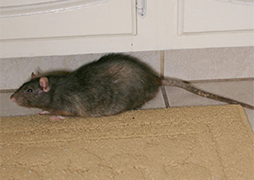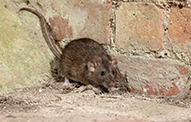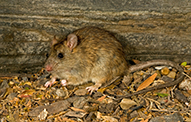
Brejtësi Norvegjez
Ngjyra: Kafët në hiri
Pesha: 200 deri 500 gram
Madhësia: Arrijnë gjatësinë prej rreth 40 centimetra – vetëm bishti i tyre mund të jetë më shumë se 20 centimetra
Mënyra e jetesës e brejtësve të Norvegjisë
Zakonisht gjendet në lartësi të ulëta, kjo specie mund të ndodhë kudo ku jetojnë njerëzit. Brejtësi Norvegjez nuk është me të vërtetë nga Norvegjia – ata besohet se e kanë origjinën në Kinë.
Bishtat e brejtësve të Norvegjisë janë me luspa dhe më të shkurtër se gjatësia e kokës dhe trupit së bashku. Veshët e tyre janë të vegjël, me luspa dhe nuk kanë lesh. Jashtëqitjet janë në formë kapsule.
Brejtësit Norvegjez zakonisht folezojnë në strofkat nëntokësore që zakonisht gjenden përgjatë themeleve të ndërtesave, nën mbeturina ose grumbuj druri dhe në zona me lagështi brenda dhe përreth kopshteve dhe fushave. Foletë mund të mbulohen me letër të copëtuar, pëlhurë ose material tjetër fijor. Ata zakonisht hyjnë në ndërtesa në kërkim të ushqimit. Kur kërkojnë ushqim dhe ujë, brejtësit e Norvegjez zakonisht udhëtojnë në një zonë prej rreth 30 deri në 50 metra në diametër; ata rrallë udhëtojnë më larg se 90 metra nga strofullat ose foletë e tyre. Brejtësi mesatar femër norvegjez lind 4 deri në 6 herë në vit dhe mund të ruaj me sukses 20 ose më shumë pasardhës çdo vit.
Brejtësit Norvegjez pushtojnë ndërtesat, ata zakonisht mbeten në bodrum ose në katin e parë.
Brejtësit Norvegjez janë gjithëngrënës dhe ushqehen me një sërë burimesh ushqimore. Ata preferojnë mish, fruta, drithëra dhe arra, dhe disa fruta, por me të vërtetë do të hanë gjithçka. Kafshët e ngordhura shërbejnë gjithashtu si burim ushqimi për këta brejtës, ata janë në gjendje të kapin peshq të vegjël dhe brejtës.
Ata kërkojnë ujë për të pirë dhe e bëjnë koloninë e tyre sa më afër një burimi të ujit dhe janë notarë të shkëlqyer.
- Kafshimet e miut dhe trajtimi
- Si të mbrohemi nga brejtësit
- Shqetësimet shëndetësore nga brejtësit

